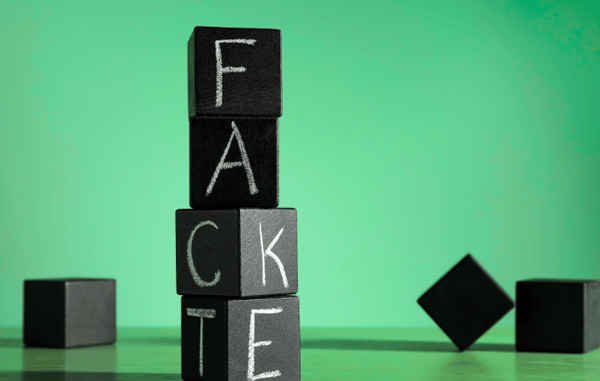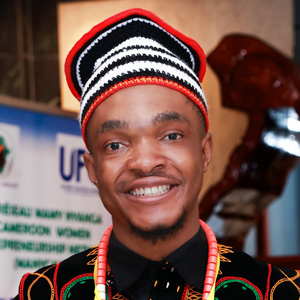Fighting health misinformation on the frontlines in Cameroon
I come from Bamenda, a city located in the North West of Cameroon, where conflict and poverty have made access to good health information challenging. In many homes, people still make decisions about their health based on rumors or WhatsApp messages. During the COVID-19 pandemic, for example, many people believed that vaccines were designed to harm Africans. These beliefs persisted because no one had explained the science to them in simple words. As a result, thousands of people still have not been vaccinated.
The World Health Organization reports that during global health crises, an ‘infodemic’ of false information can spread faster than the crisis itself, making it difficult for people to find trustworthy guidance. With over 60% of people in many African nations relying on social media for news, the risk of harmful health advice going viral is immense. This is why I founded Truth Nexus together with a group of youth. Truth Nexus is a digital web application to help my community fight back. Truth Nexus uses AI and LLM to analyse articles, images, and links, helping users quickly check if information is reliable. We also provide free, simple courses on media literacy, teaching people how to spot fake news, ranging from unproven COVID-19 cures to false claims about routine childhood vaccines. The app also has a real-time voice agent for visually impaired people.
However, the misinformation challenge not only concerns COVID-19; in my neighbourhood, for example, I have met mothers who stopped giving their children routine vaccines because of false messages spread on Facebook. I have also witnessed young people buy unapproved herbal cures for an illness they saw advertised online. These choices are not because people do not care about health, but because the evidence is not reaching them in the right way. This is why I believe that collaboration between researchers, health workers, media, and communities is so important. Together, we can make evidence simple, trusted, and useful.

Evidence must not stay in journals. It must reach mothers, fathers, youth, and leaders, and it must reach them in ways that they understand. I believe our greatest strength is each other. The fight against health misinformation is one of the biggest challenges of our time. In my work with eBASE Africa, I support research and also help bring evidence closer to communities.
Over the last 5 months since it was launched, Truth Nexus has reached over 100 young people on social media, giving them tools to tell the difference between fake and real news.
The future of evidence-based healthcare depends not only on what we know, but how we share what we know. If evidence is locked in reports, it cannot save lives. But if it is communicated clearly, with respect and collaboration, it can change behaviours and improve health.
As we celebrate World EBHC Day 2025, I encourage the global community to invest as much in communication as we do in research. Because knowledge that is not shared is like medicine never taken; it exists, but it cannot heal.
To link to this article - DOI: https://doi.org/10.70253/UMIL9557
Disclaimer
The views expressed in this World EBHC Day Blog, as well as any errors or omissions, are the sole responsibility of the author and do not represent the views of the World EBHC Day Steering Committee, Official Partners or Sponsors; nor does it imply endorsement by the aforementioned parties.
